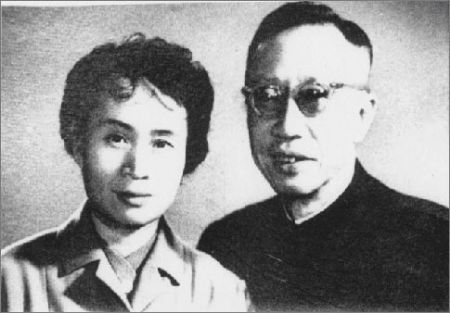Pu-yi, the Last Emperor of China
Home ![]() Famous Chinese People
Famous Chinese People ![]() Pu-yi
Pu-yi
The last emperor of China is Puyi, or Pu-yi, whose clan name is Aisin Gioro. He was made emperor when he was 3 years old.
On the ceremony of his enthronement, he was so scared by the big scene that he cried. And who can blame a three years old toddler for that? His cry on that grand occasion was just the beginning of his gloomy fate as an emperor.
The Qing Dynasty is the last dynasty in China. There were 12 emperors in the Qing Dynasty, and he was the last one. Thus he entered history not just as the last emperor of Qing Dynasty, but he last emperor of China too, if you do not count Yuan Shikai who tried to make China revert back to the imperial China by claiming himself as emperor later.
Puyi's story usually makes people sigh, yet he wasn't the most unlucky emperor in China. It's said that the most dangerous career in ancient China was to be an emperor. Their assassination rate was 31% according to Chinese historians, and the killers were normally their family members or relatives.
Some facts about Puyi:
-
His great grandfather and uncle were emperors. He was adopted by his uncle as his son because his uncle had no heir.
-
He was officially made emperor in 1908 after the Empress Dowager Cixi died. He was three.
-
He sat on the throne twice. The first time was from 1908-1912 as the Xuantong Emperor, and the second time was a restoration by a warlord general Zhang Xun. However, he sat on the throne for just twelve days (July 1 to July 12) due to the strong opposition of other powerful warlords and people over the country.
-
His abdication was signed on 12 February 1912.
-
He had five wives, two of whom divorced him.
-
He was the only emperor in China divorced by his wives. The first wife who divorced him was Wen Xiu, his imperial consort who he didn't love. Wen Xiu taught and wrote to endure her lonely life in the Forbidden City before she found an excuse to leave there. She filed her divorce in 1931 and was granted by the government of the Republic of China in the same year. This was known as the "Imperial Consort Revolution". You can imagine the shock wave it caused.
-
In the tense relationship between China and Japan, he expressed his desire to be restored to the throne to Japanese minister of war Jirō Minami in 1931 and traveled to Manchuria with the help from the Japanese and then was made the puppet ruler of Manchukuo with the reign title Datong in 1932.
-
He was captured by the Soviet Red Army at the end of World War II in 1945 while he was in an aero plane fleeing to Japan.
-
He was sent back to China in 1950 and lived in a War Criminal Reforming Center in Harerbing until 1959 when he was declared reformed. He became a normal citizen of the People's Republic of China.
-
He was divorced a second time in 1958 by his fourth wife Li Yuqin whom he married in 1943.
-
He worked as a gardener and ticket-seller in the Beijing Plantium after 1959, and as an information specialist for the Chinese People's Political Consultative Conference (C.P.P.C.C.)and was a member of the national committee of CPPCC.
-
He married his fifth wife Li Shuxian, a nurse, in 1960 with the help of Zhou Enlai, the prime minister of the People's Republic of China.
In Pu-yi's recall, he said about his first four wives,”...they were not real wives and were only there for show." Li Shuxian found him to be "...a man who desperately needed my love and was ready to give me as much love as he could."
Picture below: Pu-yi and Li Shuxian

-
He wrote a book named My First Half of Life. It was the result of encouragement from Mao and Zhou Enlai. The book was first published in 1964 and about 160,000 characters were eliminated from its manuscript.
-
Pu-yi died in Beijing from the complications of kidney cancer and heart disease on October 17, 1967. His body was cremated; his ashes were first placed at the Babaoshan Revolutionary Cemetery and later moved to a commercial cemetery near the Western Qing Tombs.
-
In 2007, his book was published again with all the content that was missing in the first edition.
- Pu-yi's story was made into a movie. See the trailer below:
Do you want to know what others say about history?
Other Topics:
China Today Facts
The Great Wall of China Facts
China Facts about History
China Facts for Kids
Chinese Language facts
China Facts about its land and sea
Home ![]() Famous Chinese People
Famous Chinese People ![]() Pu-yi
Pu-yi

New York Pass With More than 50 Sttractions

Southern California CityPASS saves you 32% for Disneyland, Universal Studios and 3 other attractions





